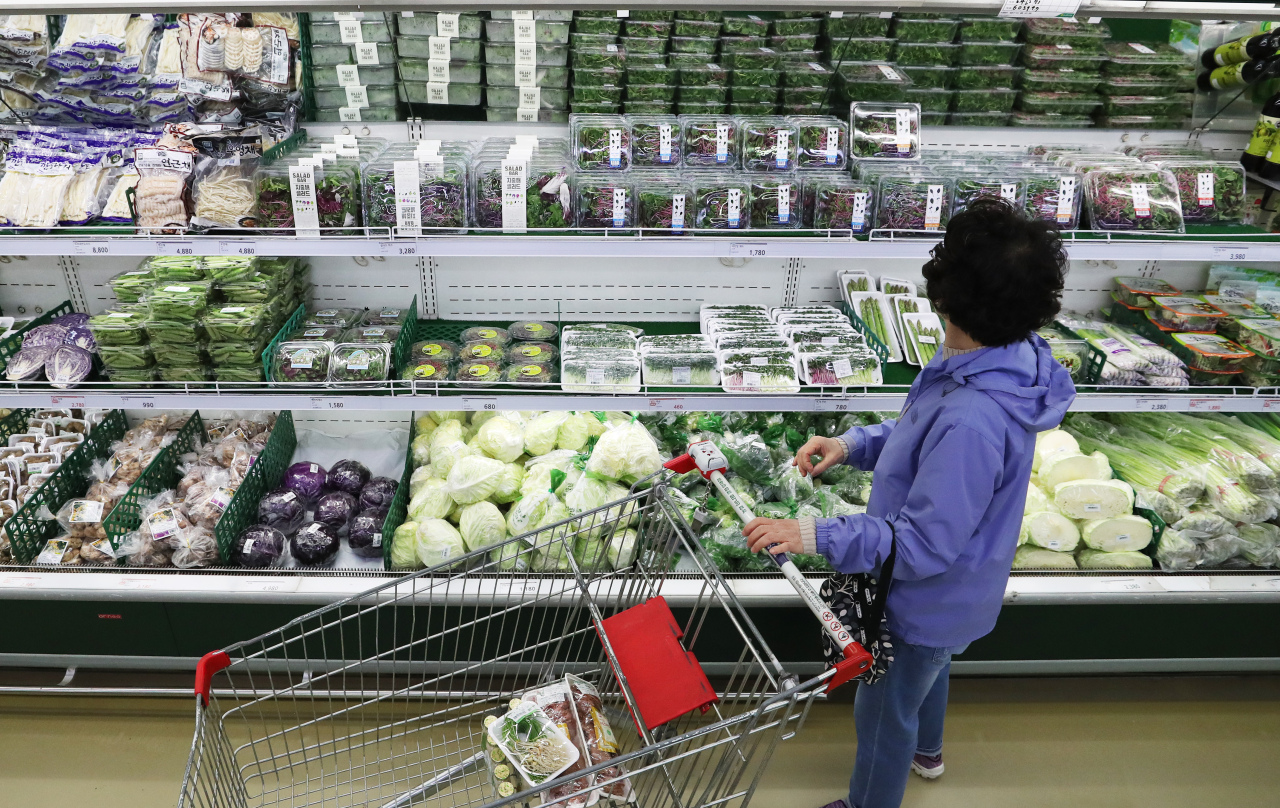 |
(Yonhap) |
Suffering the full-blown impact from the COVID-19 pandemic, South Korea’s core inflation hit its lowest point in 20 years, as dining prices dwindled amid social distancing and the government’s tax cut measures brought down automobile prices, government data showed Thursday.
Due to the country’s consistent rationing system, the average price of KF94 face masks leveled off in the offline market, indicating some cooling in the previous supply-demand imbalance.
The consumer price index stood at 105.54 points in March, gaining 1 percent from a year earlier, according to data released by Statistics Korea. This is the third consecutive month that inflation remained at 1 percent or more.
While inflation in service sectors such as travel and restaurants prolonged the slump from February, the prices of food ingredients climbed visibly due to expanded practices of home cooking.
Marking the steepest rise in prices was the vegetable category, which gained 16.5 percent on-year. The prices of petroleum products, livestock goods and fisheries also rose 6.6 percent, 6.7 percent and 7.3 percent, respectively.
The on-year inflation of petroleum products was mostly attributed to the base effect from the same period last year, when the given prices dipped 9.6 percent. In an on-month comparison, petroleum prices shed 4.1 percent amid the falling global oil prices, data showed.
Automobile prices slipped 2.6 percent, in the wake of the government’s tax cut aimed at stimulating consumption.
“The COVID-19 (situation) has had both downward and upward pressure on prices,” said Ahn Hyung-joon, economic trend statistics official in charge at the agency, in a monthly briefing held at Sejong Government Complex.
“On the domestic front, economic stimulus measures had an (upward) impact on prices, while internationally, the falling oil prices had the (opposite) impact (on prices here).”
Core inflation -- excluding the volatile food and energy sectors -- stood at 0.4 percent in March, hitting the lowest mark since the 0.1 percent observed in December 1999. The corresponding figure for February stood at 0.6 percent.
While industrial goods and food ingredients fluctuated, the price of KF94 face masks gradually steadied in the 1,800 won ($1.50) range in the offline market. Online prices, however, continued to remain above 4,000 won on average.
In early March, the government introduced a public rationing system to deal with the limited supply of and soaring demand for face masks.
The scheme allows individuals to purchase two masks for 3,000 won on a designated day of the week, depending on the last digit of their year of birth.
By Bae Hyun-jung (
tellme@heraldcorp.com)








![[Today’s K-pop] Blackpink’s Jennie, Lisa invited to Coachella as solo acts](http://res.heraldm.com/phpwas/restmb_idxmake.php?idx=644&simg=/content/image/2024/11/21/20241121050099_0.jpg)